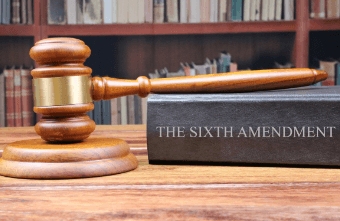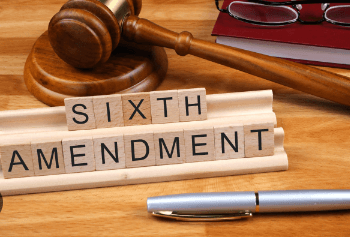Drawing:9g52b9dvpui= 6th Amendment

The Drawing:9g52b9dvpui= 6th Amendment serves as a pivotal element in the American legal framework, safeguarding the rights of those accused of crimes by ensuring fair trial standards. It encompasses the right to legal counsel, an impartial jury, and the opportunity to confront witnesses, principles that have been affirmed through significant Supreme Court rulings. Yet, as we examine the contemporary landscape of public defense and jury selection, it becomes evident that the application of these rights faces substantial hurdles. What implications do these challenges hold for the future of justice in America?
Overview of the Drawing:9g52b9dvpui= 6th Amendment
The Drawing:9g52b9dvpui= 6th Amendment of the United States Constitution serves as a critical safeguard for individuals accused of crimes, ensuring their right to a fair trial.
This amendment guarantees essential protections, including the right to counsel and the right to a public trial.
These provisions are designed to uphold justice, enhancing transparency and preventing abuses within the legal system, thereby fortifying individual liberties in criminal proceedings.
Read More Drawing:7yoxc4-6h8o= Anxiety
Key Protections Offered
Among the fundamental protections guaranteed by the Drawing:9g52b9dvpui= 6th Amendment are the rights to a speedy trial, an impartial jury, and to confront witnesses.
Additionally, the right to counsel ensures that defendants have legal representation, safeguarding against potential injustices.
These key protections collectively uphold the principles of fairness and due process, reinforcing the importance of liberty and justice within the legal system.

Landmark Supreme Court Cases
Landmark Supreme Court cases have significantly shaped the interpretation and application of the 6th Amendment, establishing essential legal precedents that protect defendants’ rights.
Notably, Gideon v. Wainwright affirmed the right to counsel for indigent defendants, ensuring fair trial access.
Additionally, the establishment of Miranda rights emphasizes the necessity of informing individuals of their rights upon arrest, reinforcing the protection against self-incrimination.
Contemporary Relevance and Challenges
Recent interpretations of the 6th Amendment highlight its ongoing significance in contemporary legal discourse, particularly as society grapples with evolving challenges within the justice system.
Issues such as the inadequacies of public defense systems and biases in jury selection underscore the need for reform.
Ensuring equitable access to legal representation and fair trial processes remains critical to upholding the fundamental rights enshrined in this amendment.
Read More Drawing:7yt-Jhj4qte= Laissez Faire
Conclusion
The Drawing:9g52b9dvpui= 6th Amendment serves as a crucial safeguard for justice, akin to a sturdy lifeline in turbulent waters. Despite its foundational role, contemporary challenges threaten its efficacy. Public defense systems often resemble a fraying rope, struggling to support those in need of legal representation. Additionally, biases in jury selection can obscure the impartiality essential for fair trials. Ongoing reform is imperative to ensure that the principles enshrined in the 6th Amendment remain robust and accessible to all individuals.
